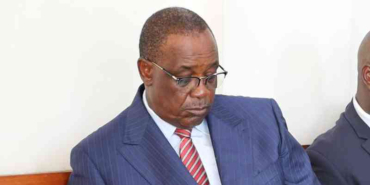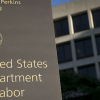Reuters: TikTok Now Main Platform for Fake News in Kenya

As Kenya approaches the 2027 General Election, TikTok is emerging as the dominant platform for the dissemination of misinformation and disinformation, according to the Reuters Institute Digital News Report 2025.
The report raises concerns about the app's potential influence on public discourse and democratic processes within the country. The study identifies TikTok as the social media platform most closely associated with the spread of misleading or false content, surpassing other more established platforms. This finding is particularly noteworthy given that Kenya was recognised by the same institute in 2023 as the world's most avid TikTok market, with 54 percent of the population using the app and nearly a third consuming news through it.
TikTok's rapid growth in Kenya is attributed to its dynamic ecosystem of content creators, influencers, and small businesses that leverage the platform to engage with a digitally active population. As of 2024, the estimated number of Kenyan TikTok users exceeds 10 million. However, this popularity is presenting significant challenges. The Reuters Institute study indicates that 55 percent of Kenyan respondents believe TikTok is a primary channel for the spread of false or misleading information, closely followed by Facebook.
This data is derived from an online survey of predominantly urban, English-speaking users aged 18 to 50, a demographic characterised by higher levels of education and affluence. While the sample may not fully represent Kenya's broader media landscape, it provides insights into how misinformation circulates among the country's most digitally active communities. The report draws a distinction between platforms such as TikTok and WhatsApp.
TikTok's algorithm-driven content distribution is seen as amplifying dubious narratives, while WhatsApp, with its closed-group communication model, is considered less problematic. The report states that "TikTok and Facebook are seen as creating the biggest threat" in terms of spreading misleading or false information. The study also underscores the role of high-profile digital influencers in propagating misinformation.
These influencers, who often reach millions of users, wield considerable power in shaping public opinion, frequently with limited accountability. A 2022 Mozilla Foundation investigation, conducted before Kenya's General Election that year, documented the proliferation of hate speech and political disinformation on TikTok's algorithmically curated feeds. The report noted that even videos that appear to violate TikTok's policies are often amplified.
These renewed concerns coincide with growing political anxieties. In April 2025, President William Ruto publicly condemned the spread of fake news, warning it poses a direct threat to national cohesion and safety.
He said, "False narratives, fabricated claims, and cynical distortions corrode the truth, distort public discourse, and erode democratic institutions." The President cautioned that social media, when manipulated, "becomes a breeding ground for hate, incitement, radicalisation, and insecurity."
The Reuters Institute emphasises that while digital media has unlocked new avenues for citizen engagement and information sharing, it has also disrupted traditional journalistic norms.








Add new comment